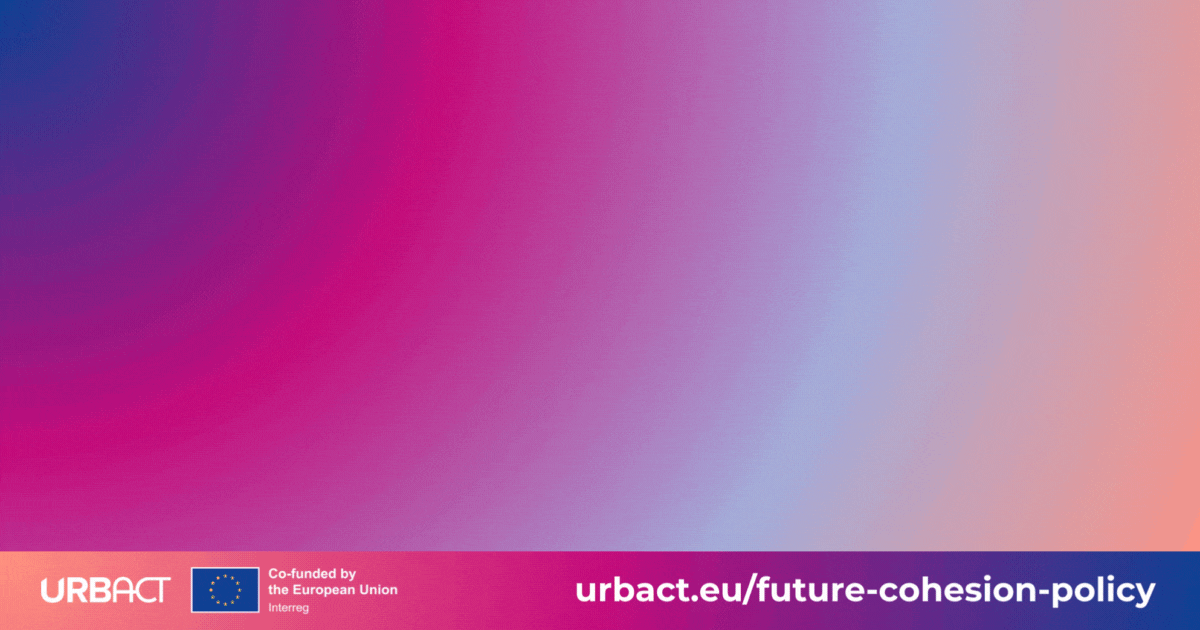Setting the tone for EU cohesion policy post 2027
The European Commission has invited all European Territorial Cooperation Programmes to join the INTERREG consultation 2024 on the future Cohesion policy (post 2027). URBACT started this consultation process with an EU survey. The survey ran from 26 March to 31 July 2024.
While the URBACT survey was targeted to cities of any size and their needs, it was also open to the general public. In tandem with the survey, a series of consultation events and discussion rounds took place to address citizens, particularly young people.
“It is important that we shape the future URBACT together,” said Teofil Gherca, URBACT Programme Director. “Our mission is to support the exchange of knowledge and good practices between cities from all over Europe. The survey will help us show the benefits of such cooperation and to improve our offer to cities. They know best what they need to improve people’s quality of life and well-being.”
Ultimately, the results of the survey will be presented to the public and submitted to the European Commission to feed the discussion on the future Cohesion policy and its support for cooperation among cities.
Ask not what you can do for URBACT, but what URBACT can do for you
Since 2002, URBACT has been driving change all over Europe by enabling cooperation and knowledge exchange amongst cities within thematic networks. More than 1,000 cities have participated in URBACT so far, in over 150 city networks, more than 20 National Campus, European Summer Universities and City Festivals, sharing a common understanding and joint vision of sustainable and integrated urban development.
Over the years, and across the board, these networks have responded to city needs – building the skills of local stakeholders in the design and implementation of integrated and participatory policies and sharing good city practices. With URBACT III, for example, the URGE network designed new policies on circularity in the building sector – a major consumer of raw materials. The partner cities managed to gain an in-depth understanding of circularity and developed a tailor-made methodology to integrate the topic into large construction projects. Under the current URBACT IV programme, the LET‘S GO CIRCULAR! network is taking the circular economy approach to the next level in line with the European Green Deal and the EU Circular Economy Action Plan. The 10 partner cities are working on innovative solutions for all issues relevant for circular city ecosystems, such as plastics, textiles, e-waste, food, water, packaging, batteries and vehicles, thus paving the way for a real circular transition of cities.
Looking ahead: survey results and implications
URBACT will get to work summarising and analysing the results. Initial findings will be presented in autumn 2024. The results will be published in a report, which will be finalised by the end of the year, drawing conclusions and drafting recommendations for post-2027 EU Cohesion policy. Subsequently, the outcome will be submitted to the URBACT Monitoring Committee and the European Commission.
This timing is important, as the European Commission will already prepare its proposals for the post-2027 regulations in 2025. The results of the survey will also be an important input to evaluate the current programme’s performance, with a view to the future of URBACT programme.
“URBACT prides itself on providing a coherent offer close to cities' needs while contributing to the priorities of the EU. Having the input of as many cities and local authorities as possible is key to shaping the next generation of territorial cooperation programmes within the EU Cohesion Policy,” stated Eric Briat, deputy head of URBACT IV Managing Authority.


